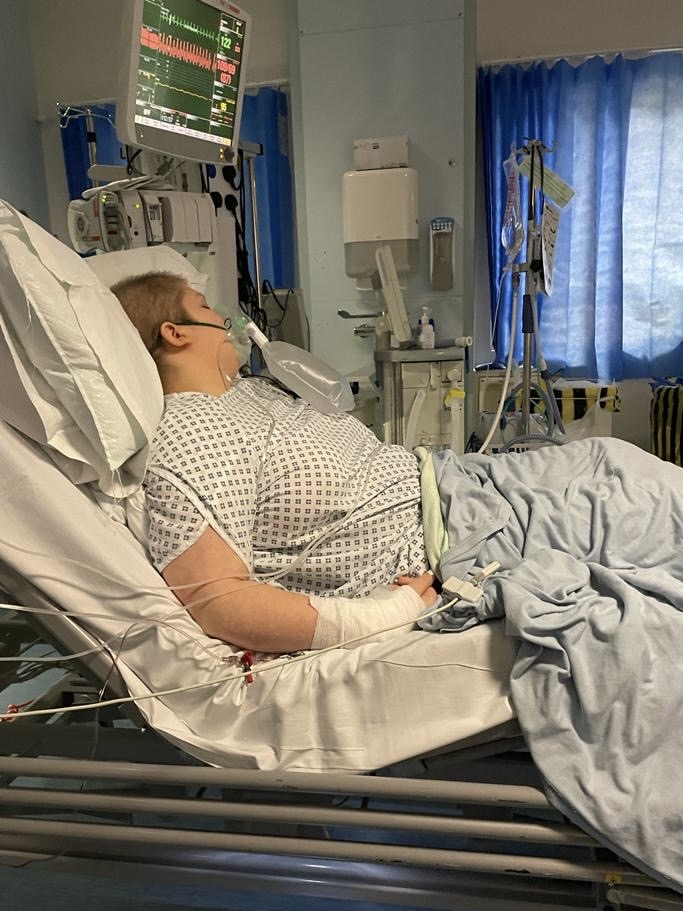Acting quickly on the symptoms of testicular cancer probably saved my life
Josh
After being diagnosed with testicular cancer, Josh needed help to feel in control again. His Teenage Cancer Trust Nurse Meg helped him access mental health support and regain his independence.
You are viewing: A lump on my testicle
A lump on my testicle
Ever since I was a toddler, all I’ve ever wanted was to be outdoors. I did Countryside Management at college. I’ve worked on estates and farms, and I was enjoying working on an organic farm.
One day I suddenly noticed that one of my testicles was a bit firmer and bigger than normal. I wouldn’t say that I’m one to check, but I was aware.
I rang the doctor and they saw me the same day. They booked me in for an operation and took a biopsy.
I don’t think there is ever a good time to get cancer, but my diagnosis came at a particularly bad time. Because of Covid-19, I had to go to all my appointments without family or friends. I’m not good at taking in a lot of information at once. I’d often leave more confused than I went in, and I’d forget to ask questions.
This is where Meg from Teenage Cancer Trust came into it. She was there when I received my diagnosis and has been with me ever since.
When I was diagnosed, the doctor used lots of technical terms that I didn’t understand. I had so many questions, like what would happen next, would I get ill, and would I lose my hair. Meg took me into a room afterwards and chatted to me. It was so helpful having her there as she immediately explained everything in a really simple way.
Meg came to all of my appointments from then on. There were times when I was sitting there with my mouth open, not knowing what was going on. I’d sit and turn to Meg, and she’d explain what had been said. She got to know me really quickly and could work out what I needed even when I hadn’t phrased it in the best way. Nine times out of ten she’d say: ‘Don’t worry’ or ‘Leave it with me’ and she’d get it sorted.
I started my chemo at Cheltenham General Hospital in February 2021. Going in by myself was really hard as I had to stay in by myself for three days. For most of the time in hospital, I was the youngest by about 40 years. I had imposter syndrome.
Over time, the chemo built up. The second round was hard and the third even harder. I went from being a super fit person to struggling to get out of bed. I also had no hair at all, and the steroids made me put on two stone and my cheeks were swollen. I had lost all my independence.
For most of the time in hospital, I was the youngest by about 40 years. I had imposter syndrome.
I needed help with my mental health
When I was given the all-clear, I really started to struggle. I felt like I was letting my team down, so I rushed back to work too quickly, and it affected my mental health as I didn’t give myself long enough to reflect on what had happened to me.
I was worried that I was the only one feeling that way and Meg reassured me that it was normal, and most people asked for help. In typical Meg fashion, she said: ‘Leave it with me’. She acted really quickly, and a clinical psychologist called Diana phoned me the following week.
Diana quickly built up a good rapport with me and she took the time to get to know me. She asked about my family and my life, and I allowed her in. She grasped exactly what I was about and what I needed. One of the things I was struggling with was anger. I was angry with the world. I thought it wasn’t fair that I had to go through that. She knew I was into audiobooks, so she suggested a few for me to listen to. It helped me think about where the anger was coming from and why. I understood that it was no-one’s fault that I got cancer and that it didn’t help to feel angry with the world.
Meg has been my saving grace. It would have been a completely different experience without her as she made everything ten times easier. I seriously don’t think I could have stayed so positive if she wasn’t helping me. I think everyone young person should have someone like Meg helping them through it.
